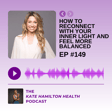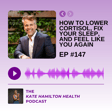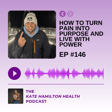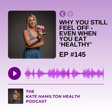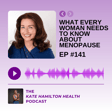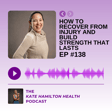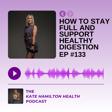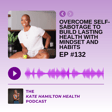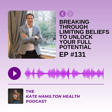
#128: Dr: Courtney Johnson: How women can build strength and confidence through better pelvic floor health
This episode is all about empowerment - from the inside out. I’m joined by Dr. Courtney Johnson, also known as the Female Athlete Doc, to have an honest, myth-busting conversation about pelvic floor health and why it’s so much more than just kegels. Whether you’re navigating postpartum recovery, dealing with incontinence or prolapse, or simply want to feel stronger and more in control of your body as you age, this episode is for you.
We chat about how strength training, breathwork, yoga, and smart movement can completely transform your pelvic wellness at any stage of life. Dr. Courtney shares insights on how to build true core strength, overcome common barriers to exercise, and create a foundation of health that supports both performance and longevity. It’s time we normalise these conversations and give women the tools they need to feel confident in their bodies again.
EPISODE HIGHLIGHTS:
[0:00] - Why pelvic health needs to be part of the wellness conversation
[0:28] - Meet Dr. Courtney Johnson, the Female Athlete Doc
[1:23] - What pelvic floor dysfunction really looks like in everyday life
[3:58] - Common barriers women face when trying to stay active
[6:48] - Simple habits that support long-term pelvic health
[10:56] - How to assess pelvic floor mobility (and why it matters)
[22:47] - Core training that actually works (without making symptoms worse)
[32:28] - Can you really do jump training with pelvic floor issues?
[34:21] - How to train for longevity and fun
[42:07] - Understanding pelvic organ prolapse and the path to recovery
[56:24] - Using fitness as a tool to feel empowered - not limited
Links & Resources:
- Connect with me on Instagram here
- Connect with Courtney on Instagram here
- Learn more about KHH coaching here
- Learn more about The Pelvic Wellness Academy here
If you enjoyed this episode, please subscribe, leave a review, and share it with friends who might benefit. For more health and fitness tips, follow me on Instagram and TikTok @katehamiltonhealth.
Music b LiQWYD Free download: hypeddit.com/link/xxtopb [http://hypeddit.com/link/xxtopb] Promoted by FreeMusicPromo [https://www.youtube.com/channel/UCbycji-eySnM3WD8mbxPUSQ] / @freemusicpromo

